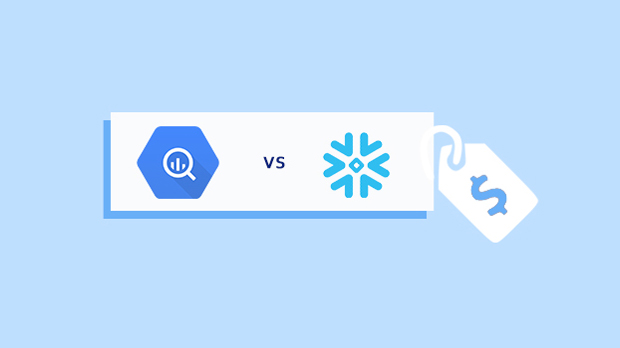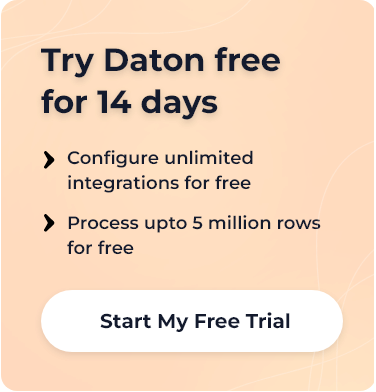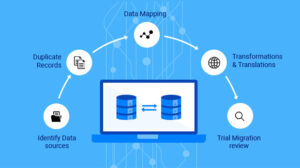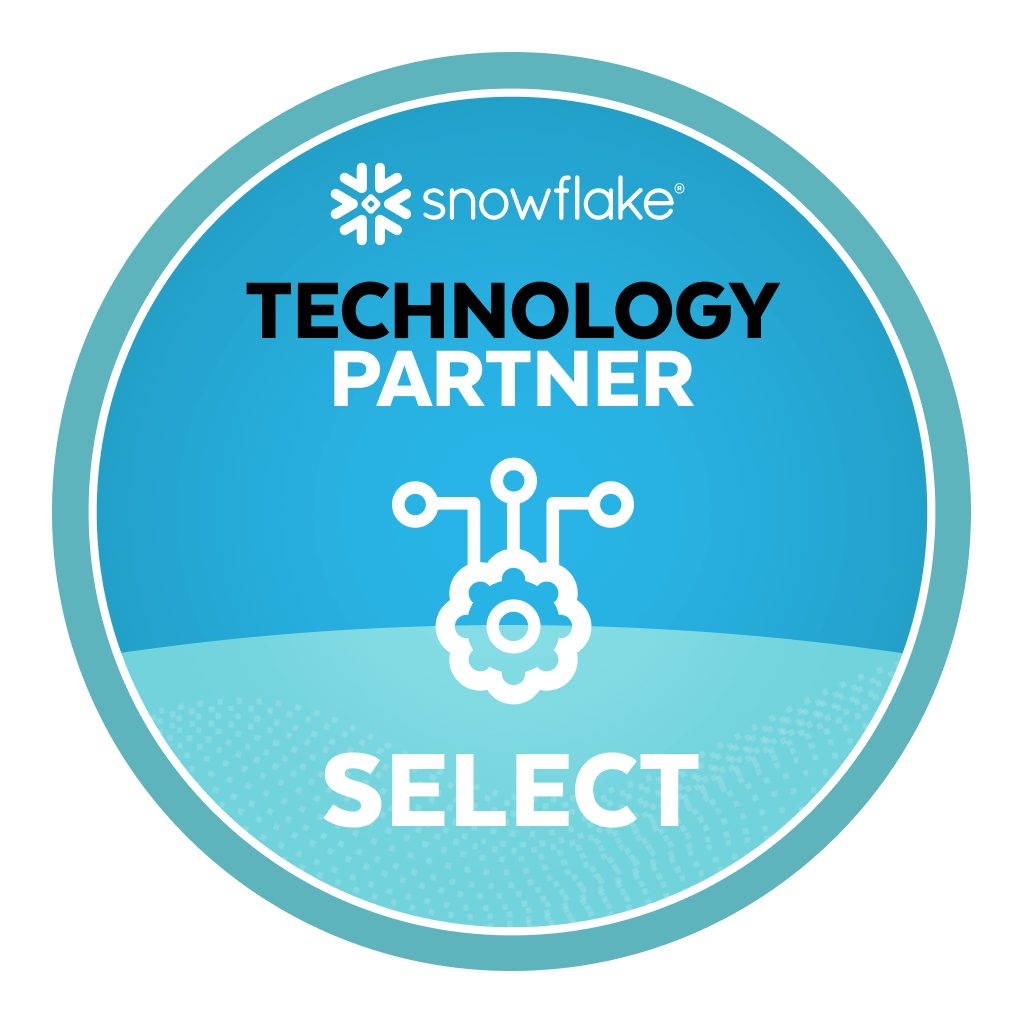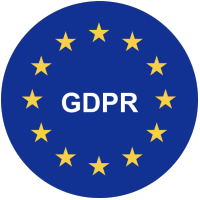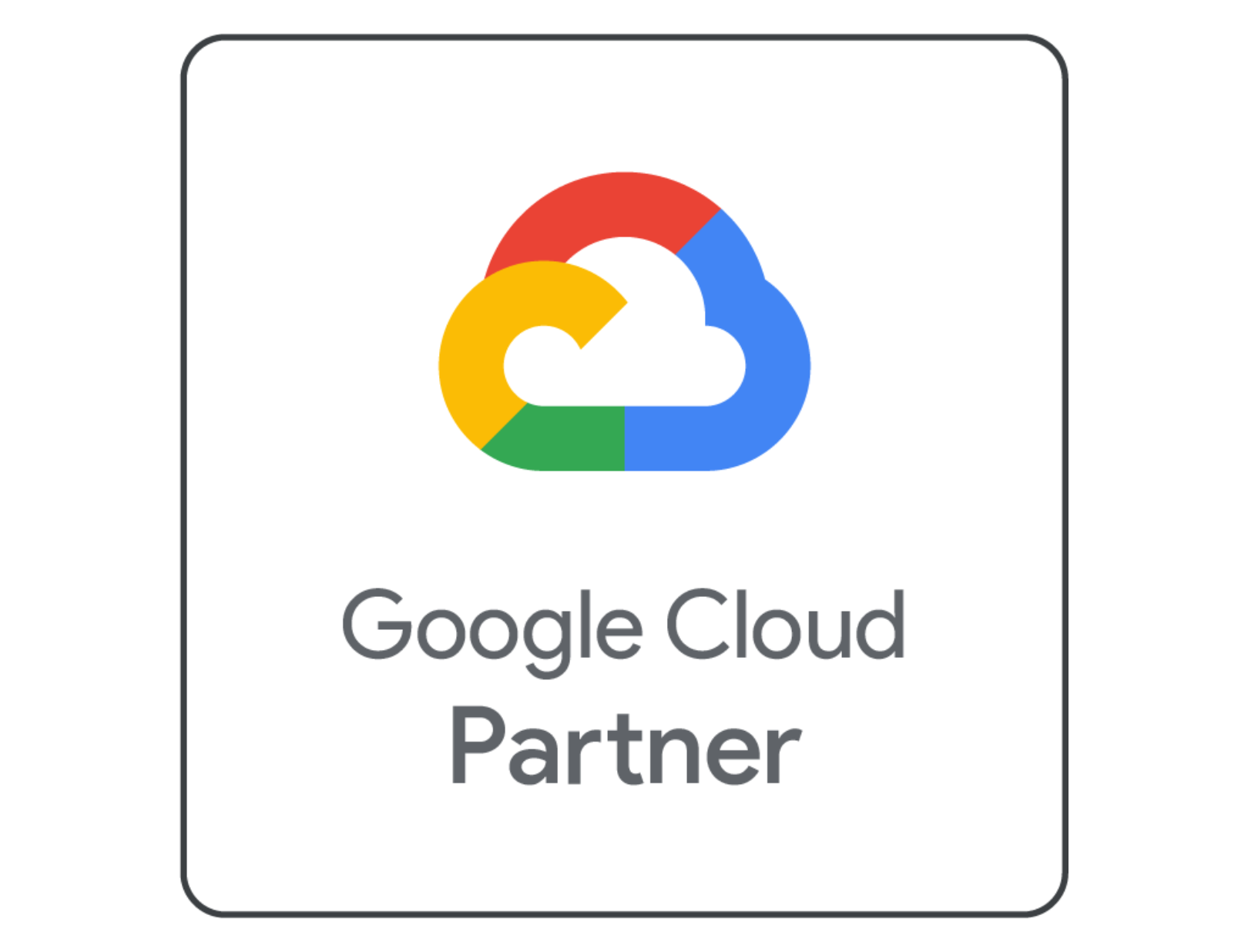If you are a business owner who thinks seriously about big data, chances are you are aware of the two leaders in data warehouse technology namely Snowflake and Google BigQuery. Having the right virtual data warehousing solution at your disposal is quite important to make your project successful. However, managers usually face a tough time in weighing the pros and cons of each technology and choosing the one that fits them best. There is no doubt that both cloud data warehouses have their own features, however, the choice of the right one will entirely depend on one’s own needs and preferences.
As per a recent stat, the global data warehousing market will grow by over $30 billion by 2025. The significant growth of data warehousing solutions is making it harder to choose the best technology for businesses. If you are confused between BigQuery and Snowflake, this guide will help you out in choosing the best data warehouse solution that suits you best. Keep reading to know more!
BigQuery Vs Snowflake: An Overview
Investing time in finding the right technology can make or break your entire data warehouse project. This, in turn, will help your business to thrive with keen data-driven insights. Before we dive deep into both the tools, let us quickly differentiate them based on pricing, performance, ease of use, scalability, security, etc.
| BigQuery | Snowflake | |
| Pricing | Query based pricing model | Time based pricing model |
| Performance | Robust performance than Snowflake in most of the cases. | In certain cases, Snowflake has the features to outperform BigQuery. |
| Ease Of Use | Extremely easy to run as it is serverless in nature. | Scores high on the usability scale and is easier as compared to BigQuery. |
| Scalability | No need to perform performance tuning or manual scaling as it is highly scalable and offers advanced features under one roof. | Comes with basic and advanced scalability features. |
| Security | Compliant with HIPAA and PCI DSS regulations and come with robust security features. | It also comes with extra security features that help you to keep your data protected and confidential. |
Both data warehouses – BigQuery and Snowflake – are excellent examples of enterprise level data warehouses. These two tools can offer crucial business insights and analytics that can help the largest organizations to thrive in the competitive market. You can use both tools with ETL or ELT.
Now that you’ve an overview of both the tools, let us have a look at the crucial details about the tools.
What Is Snowflake
Snowflake is one of the most popular data warehousing solutions that is purpose built for the cloud. The best part about Snowflake is that the data warehouse solution is faster, flexible, and easier to use than its competitors. The cloud-optimized architecture of Snowflake is built with SQL database engine. Furthermore, Snowflake helps one to scale up and down without any extra effort, giving extra flexibility while cutting costs.
Pros Of Snowflake
There are many positive aspects of choosing Snowflake and they can be easily categorized into three main types including:
- It offers support for different cloud providers i.e., the tool features high accessibility.
- It comes with well-designed data manipulation services.
- Snowflake assists the user to easily start the virtual data warehousing.
- To get started with the solution, all you need to do is choose the cloud provider and the region. Once it is done, you can easily build solutions without having appropriate knowledge of cloud setup.
- It comes with a great dummy dataset which is organized in various structures and sizes.
- The tool helps you to create a clear as well as well-designed query profiler.
- You can store the raw data in the cloud and access it via external tables.
Cons Of Snowflake
Like every tool and technology, Snowflake comes with pros and cons. Below we have mentioned the negative aspects of Snowflake.
- Before you plan to do a query, you need to set and select the virtual warehouse. However, metadata queries are not included in this set.
- The minimum time interval that is available for scheduling tasks is nearly 60 seconds.
- While utilizing the tool, one must pay keen attention to the time travel options as it can lead to cost build up.
What Is Google BigQuery
Google BigQuery is the data warehouse solution of Google and was launched in 2010. The entire cloud computing system of Google revolves around the data warehouse solution called Google BigQuery. As per the statement of Google, BigQuery is like the query service where business owners can run SQL-like queries and get the best results in a few seconds or minutes.
Pros Of BigQuery
BigQuery, on the other hand, offers a handful of benefits to the users and enterprises. These include:
- It supports Google marketing services, Google drive, and AWS S3 storage.
- There are a lot of free data sets and machine learning.
- Users do not have to deal with virtual warehouse management.
- It offers remarkable support to low latency streaming and Sandbox accounts.
- It helps the users with Query validation as well as consumption estimation before execution.
Cons Of BigQuery
Aside from the benefits, there are a few disadvantages of BigQuery.
- There are certain limitations regarding data exporting which affects the way the users work.
- For query processing, there is a lack of compute customization feature for the cost optimization.
- There is an extra cost that is charged for the data transfer services that involve scheduling queries.
- For scheduling tasks, the users need to wait for around 15 minutes.
Learn about Google Bigquery.
Main Differences Between BigQuery vs. Snowflake
Pricing
When it comes to choosing the best data warehouse solution, it is vital to look for the cost of the solution. Being one of the most crucial factors, the pricing of both the solutions can help you decide which solution is more suitable for you.
Snowflake Pricing
The exact cost of Snowflake will entirely depend on how much you use it. Users must pay two different costs to get access to Snowflake, namely storage costs and computing costs. Storage cost is straightforward as you need to pay either upfront cost of $23 per terabyte per month or an on-demand cost of $40 per terabyte per month. In addition, the computing price of Snowflake is a little complex to understand. The standard computer tier is the cheapest that costs you around $2 per hour.
BigQuery Pricing
Like Snowflake, the pricing of BigQuery is divided between computing and storage. If you want active and uncompressed storage, you need to pay around $20 per terabyte per month. For long term storage, the price of storage decreases to $10 per terabyte per month. Every month the users get 10 gigabytes of storage free which makes it cheaper than Snowflake. Talking about the computing prices, users must pay around $5 per terabyte for on-demand queries.
If you are a user who needs to go through hundreds or thousands of data heavy queries, you should opt for the time-based pricing model of Snowflake. On the other hand, if you are a user who does a lot of data mining, BigQuery would be the right choice.
Performance
Next important thing that differentiates Snowflake and Google BigQuery is the performance. It would be a rush to indicate one is superior from the other. That is why we have made a little comparison based on a series of 2019 benchmark tests conducted by GigaOm. GigaOm conducted a total of 103 tests over the industry standard TPC-DS dataset. The result of the test indicated that Snowflake took 5,793 seconds to complete the 103 tests whereas BigQuery took around 37,283 seconds to complete the test.
Features
Even though performance and pricing are the two most important things that one needs to look for while selecting the data warehouse solution, the list expands to the features as well. Let us break down the key features of the data warehousing solutions and compare BigQuery and Snowflake.
Ease Of Use
While selecting the right technology for your enterprise, it is vital to check if it is easy to use for the users. Even though both Snowflake and BigQuery are tagged to be user-friendly, it is important to know your own needs and preferences.
As per the business software review about Snowflake and BigQuery, the former received around 9.2 rating for the ease of use whereas BigQuery received 8.2 rating. Even though both are easy, you should go for the one that eases your task.
Scalability
In terms of scalability, Snowflake helps the users to compute and store the resources independently. The users can automatically do the performance tuning along with workload monitoring to boost the query time while running. On the other hand, BigQuery, due to its serverless nature, helps the user to handle large data workloads easily. Using BigQuery assists users to easily process petabytes of data in a matter of a few minutes.
Security
Organizations related to retail data, healthcare, financial, etc. have access to confidential and sensitive information. That is why it is vital to choose a data warehousing solution that is secure and safe. The best part about both tools is that they both offer utmost security.
Snowflake is compliant with SOC 1 Type II, SOC 2 Type II, HIPAA, and PCI DSS. There are other security features available that include multi-factor authentication, IP whitelisting and blacklisting, access control, automatic data encryption, support for OAuth and user SSO and much more.
BigQuery, on the other hand, is compliant with the industry-specific standards of HIPAA and PCI DSS. The Cloud Identity and Access Management (IAM) feature of the BigQuery helps the users to fine tune user access to the cloud resources.
Maintenance and Management
Both the tools do not require any additional management or maintenance. This is because there is additional maintenance that keeps on functioning in the background. In Snowflake, the queries are optimized as well as tuned in the background whereas in BigQuery the users are unaware of the considerations as it is serverless.
Which Data Warehouse Is Suitable for You – Snowflake or BigQuery
Now that we have gone through a detailed list of features, advantages, and disadvantages of each of the data warehouses, it is time to decide which of them will suit your needs. Briefly, both data warehousing solutions are more alike than different. That is, both Snowflake and BigQuery offer the same robust performance, low hands-on maintenance, and a little bit same per query expenses. The only thing that will help you to choose the best data warehousing solution is the style of your workflow.
Let us understand better with the examples,
- If your enterprise deals with large data sets but with a spiky workload, it would be ideal to choose BigQuery as it will be cheap and easy for you. Choose BigQuery only if you’ve to run a bunch of queries occasionally.
- On the other hand, if you are an enterprise and you’ve to run a steadier usage pattern for data and queries, you can opt for Snowflake. As you get a chance to cram more queries in the same compute hours, it would be cost-effective to use Snowflake in this case.
Conclusion
There is no doubt that virtual data warehousing is becoming increasingly important and is the future of how enterprises use and store their big data. That is why it is vital to choose the best data warehousing solution that aligns with your business needs and helps you get the crucial business insights. Even though both solutions have plenty of things in common, one should always analyze the differences before choosing the right tool for their business growth.
Always consider pricing, features, and the cons of each tool before you make a final choice of choosing the right one. If you are looking for more information or wish to make the right decision for a data warehouse, feel free to contact the team of Saras Analytics. We’ve a team of experts who will help you to solve the data warehouse issues and keep your business up and running.
